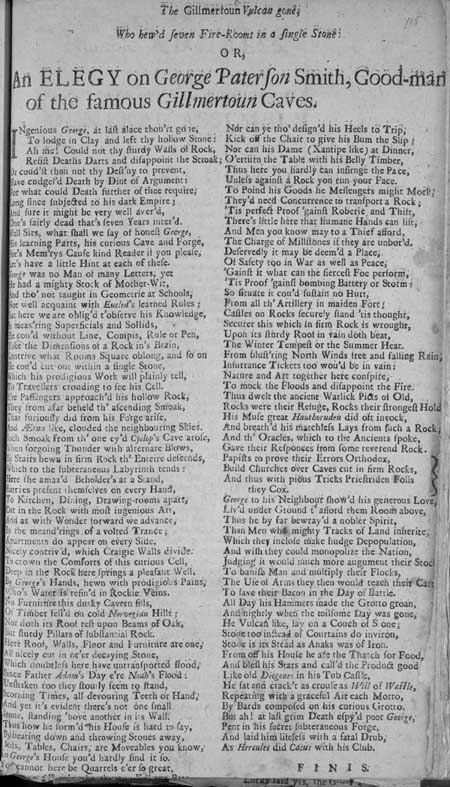Commentary
This memorial notice begins: 'The Gillmertoun Vulcan gone; / Who hew'd seven Fire-Rooms in a single Stone: / OR, / An ELEGY on George Paterson Smith, Good-man of the famous Gillmertoun Caves.' The elegy begins: 'Ingenious George, at last alace thou'rt gone'. George Paterson is thought to have begun his rock home in Drum Street, Gilmerton, in 1719 and finished sometime in 1725. He and his family dwelt there until long past his death probably in 1735, as the land was his by right. The whole complex consisted of numerous rooms, furnished with rock-hewn chattels, and focused on the huge forge. This was where Paterson eventually conducted his business from. It is now a tourist attraction open to the public as Gilmerton Cove. Broadsides are single sheets of paper, printed on one side, to be read unfolded. They carried public information often for entertainment, such as memorials and eulogies. Cheaply available, they were sold on the streets by pedlars and chapmen. Although many of the people are now lost to researchers, their stories offer a valuable insight into many aspects of the society they were published in.
View Transcription | Download PDF Facsimile
|
 |
Probable date published:
1735 shelfmark: Ry.III.c.36(115)
 View larger image
View larger image
|


